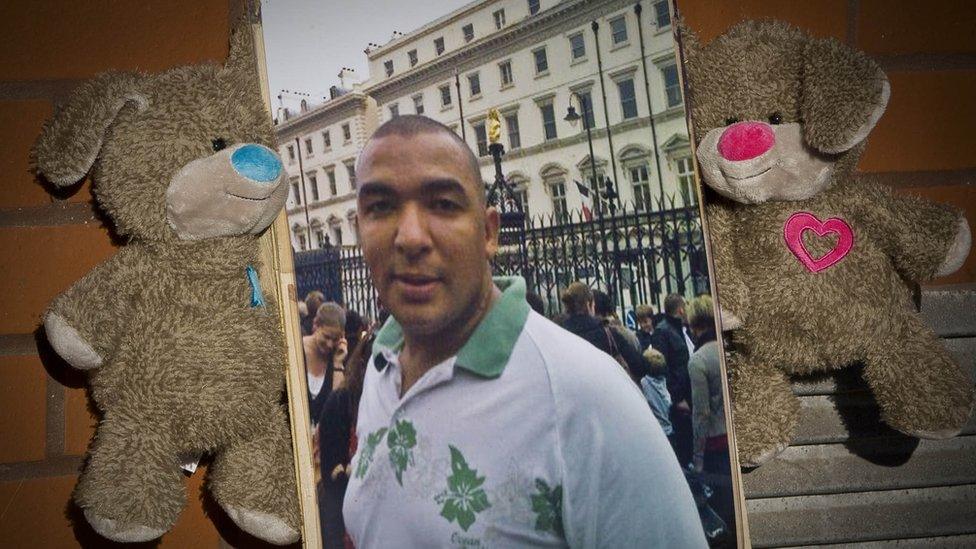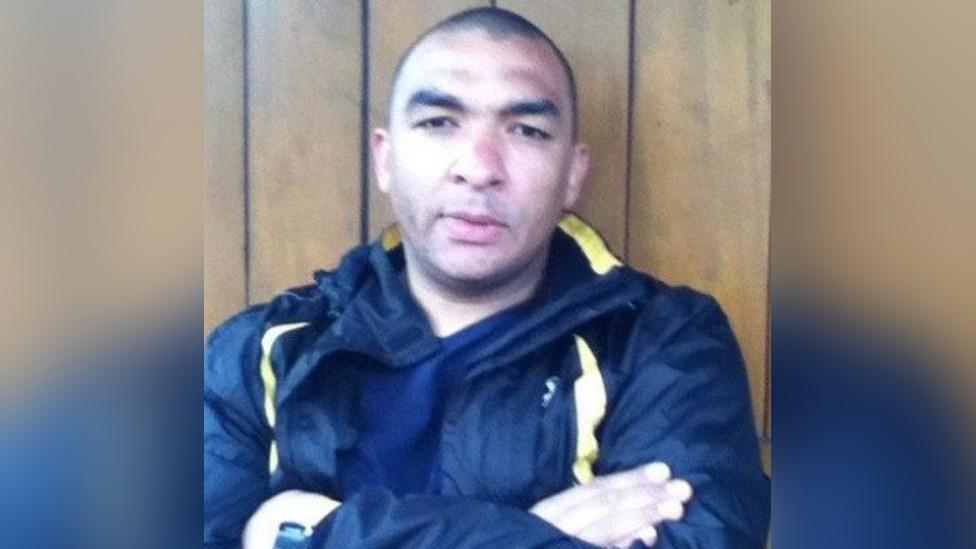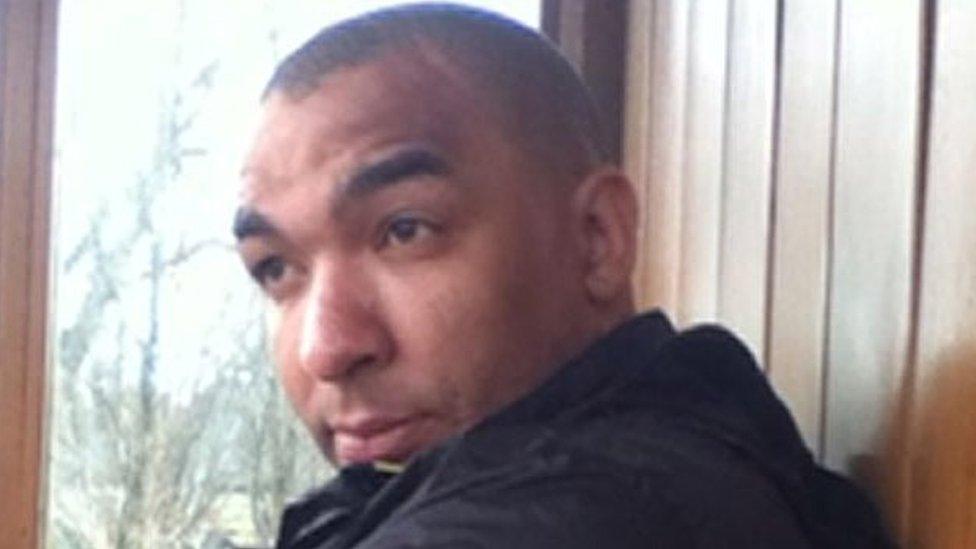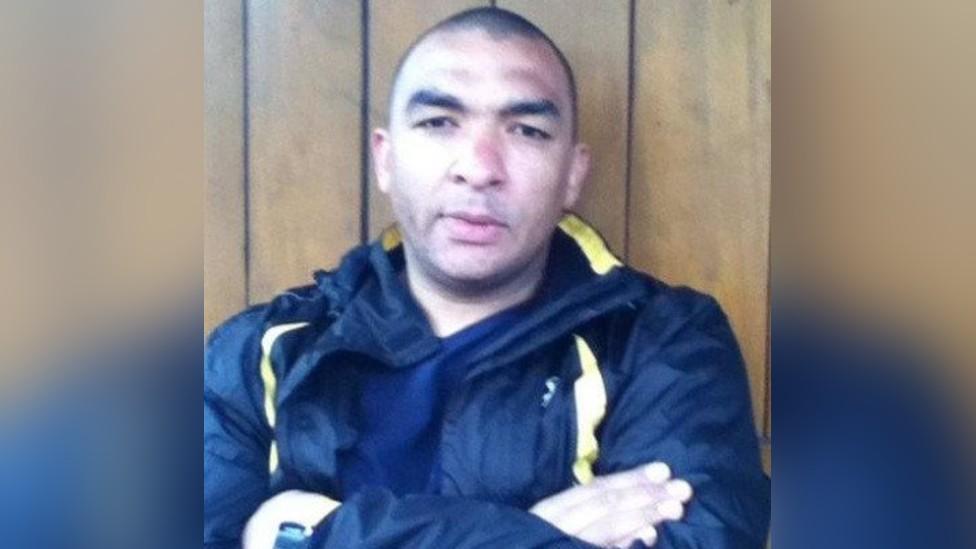Leon Briggs death: Paramedics who saw police restraint 'would have acted differently'
- Published

Leon Briggs died in hospital after being restrained and detained at Luton police station in November 2013
Paramedics who witnessed a man being restrained by police before his death would have acted differently had they known he had heart disease and had taken amphetamines, an inquest heard.
Leon Briggs died in 2013 after being detained under the Mental Health Act at Luton police station.
Ambulance worker Sarah Freeman said she did not "see any reason" why Mr Briggs should not have been taken to custody.
She agreed it would have been different if she knew about his health issues.

Mr Briggs was described as "a really good dad" who loved spending time with his children
The inquest previously heard the father-of-two was having a "mental health breakdown" and was behaving "very unusually" in Marsh Road, Luton, on 4 November 2013.
Mr Briggs was detained in a cell by Bedfordshire Police at about 14:25 GMT under the Mental Health Act, but he became unconscious and was pronounced dead in hospital at about 16:15.
The inquest heard Mr Briggs's primary cause of death was "amphetamine intoxication with prone restraint and prolonged struggling".
A secondary cause of death was given as coronary heart disease.

A witness said Mr Briggs appeared to be having a "nervous breakdown"
Ms Freeman, an emergency care assistant, told the inquest she had been called to the scene with paramedic Kevin Mead.
She described the lorry driver, who lived in Luton, as "alert, conscious and breathing".
"Neither of us could see any reason why he could not be taken to custody to be seen by the police doctor or the psychiatrist," she said.
Ms Freeman told the jury it would not have been possible to carry out any observations on Mr Briggs as he was struggling, but it did not appear that he needed to go to hospital.
"There were no injuries. He was breathing, conscious, alert. It didn't seem untoward that he was put into the back of the van and taken to custody."
While being questioned by John Beggs QC, representing Bedfordshire Police, Ms Freeman agreed if she and her colleague knew Mr Briggs had coronary heart disease and had taken amphetamines, they "probably would have done things differently".
Mr Beggs asked: "Nothing the police did suggested they were deliberately trying to hurt him?"
She replied: "No."
The inquest continues.

Find BBC News: East of England on Facebook, external, Instagram, external and Twitter, external. If you have a story suggestion email eastofenglandnews@bbc.co.uk
Related topics
- Published21 January 2021

- Published19 January 2021

- Published18 January 2021

- Published14 January 2021

- Published13 January 2021
